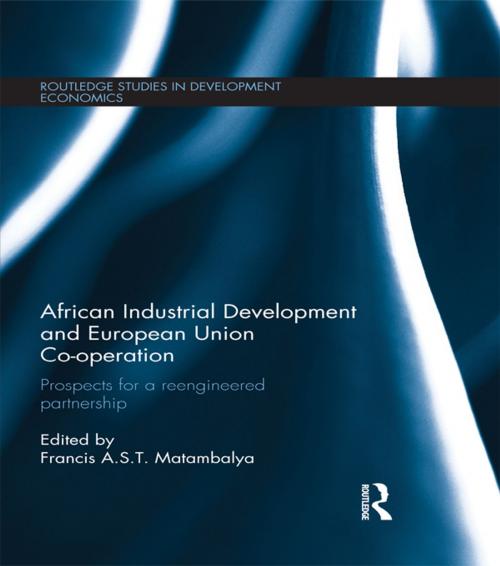African Industrial Development and European Union Co-operation
Prospects for a reengineered partnership
Business & Finance, Economics, Economic Development| Author: | ISBN: | 9781317674658 | |
| Publisher: | Taylor and Francis | Publication: | August 27, 2014 |
| Imprint: | Routledge | Language: | English |
| Author: | |
| ISBN: | 9781317674658 |
| Publisher: | Taylor and Francis |
| Publication: | August 27, 2014 |
| Imprint: | Routledge |
| Language: | English |
Of the 54African states, only South Africa is categorised by the United Nations Industrial Development Organization (UNIDO) amongst industrialised countries. The economic activities in Africa are still dominated by the production and trade of agricultural and mineral commodities. This situation is in spite of the longstanding Africa--European Union (EU) co-operation, which intends, among other things, to support Africa’s industrialisation endeavours.
Imperatively, a long road to substantive levels of industrialisation still lies ahead of most African countries. This raises the question as to what role the international community could and should play in the twenty-first century to provide the support needed to expedite Africa’s industrial transformation.
This book argues that to supplement the initiatives of each African country, international partnerships, of both a ‘North–South’ and ‘South–South’ nature, will serve better purposes if they are leveraged to develop productive capacities in African economies. In order to enable the African countries to leverage their traditional partnership with the EU for industrialisation, a paradigm shift is obligatory. A feasible model should emulate the Japanese-led ‘flying geese’ model and the Chinese-led ‘bamboo capitalism’ model.
Of the 54African states, only South Africa is categorised by the United Nations Industrial Development Organization (UNIDO) amongst industrialised countries. The economic activities in Africa are still dominated by the production and trade of agricultural and mineral commodities. This situation is in spite of the longstanding Africa--European Union (EU) co-operation, which intends, among other things, to support Africa’s industrialisation endeavours.
Imperatively, a long road to substantive levels of industrialisation still lies ahead of most African countries. This raises the question as to what role the international community could and should play in the twenty-first century to provide the support needed to expedite Africa’s industrial transformation.
This book argues that to supplement the initiatives of each African country, international partnerships, of both a ‘North–South’ and ‘South–South’ nature, will serve better purposes if they are leveraged to develop productive capacities in African economies. In order to enable the African countries to leverage their traditional partnership with the EU for industrialisation, a paradigm shift is obligatory. A feasible model should emulate the Japanese-led ‘flying geese’ model and the Chinese-led ‘bamboo capitalism’ model.















